
She has authored historical fiction, migrant fiction, and stories about women's lives. And her latest book is called Independence, which follows the lives of three sisters during the partition of India and Bengal, a topic that we don't often see.
Q: So Chitra, what was one memory from your childhood in Bengal that made you want to be a writer?
The memory of my grandfather telling me stories. Every summer my mother would pack me off to my grandfather's. I think I must have been a naughty child and she was probably glad to get rid of me for the summer holidays. I just loved being with my grandfather because he was the best storyteller.
He lived in a little village about three hours from Kolkata, and the village of Ranipur in my latest book, Independence, is built around memories of my grandfather's village.
There was no electricity in the village, so every evening he would light the lantern and call all of us cousins, and we would sit near him. The lantern would throw shadows on the wall and he would tell us stories, and I remember those evenings so beautifully.
That's when I learned the stories of the Mahabharata and the Ramayana, and I fell in love with those stories. You can see how that influenced my life, made me into a writer.
Q: You're such a prolific writer, Chitra. How do you get such varied ideas and how do you even decide which ones to explore? I believe you got the inspiration for The Last Queen at the Kolkata Literary Festival. The author, William Dalrymple, shared a picture of Rani Jindan on the screen, and you decided to write about her life. So, what was your process?
Thank you for that great question.
You are right, that inspiration came to me out of the blue; it was so surprising. I feel so grateful, because I never know where the idea for a book is coming from. It's not like I make a conscious choice.
This story is from the {{IssueName}} edition of {{MagazineName}}.
Start your 7-day Magzter GOLD free trial to access thousands of curated premium stories, and 9,000+ magazines and newspapers.
Already a subscriber ? Sign In
This story is from the {{IssueName}} edition of {{MagazineName}}.
Start your 7-day Magzter GOLD free trial to access thousands of curated premium stories, and 9,000+ magazines and newspapers.
Already a subscriber? Sign In
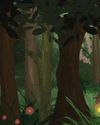
A Flower from THE HEAVENS
November 14 is Children's Day. This year, SARA BUBBER brings to you a world of forests, magical flowers, festivals, and some animals you may have never seen.

Meeting Phenomenal Women
The author, CHITRA BANERJEE DIVAKARUNI, is interviewed here by TARA KHANDELWAL and MICHELLE D'COSTA about her books on mythology, like The Palace of Illusions, which is a retelling of the Mahabharata from Draupadi's point of view, and The Forest of Enchantments, which is a retelling of the Ramayana, from the eyes of Sita. And there's The Last Queen, which is about Rani Jindan's life.
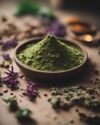
HERBAL TOOTH POWDERS: Rediscovering Ayurveda's Natural Secrets
SRAVAN BANDA presents a natural herbal tooth powder, offering a holistic approach to oral hygiene, harnessing the power of medicinal herbs.

The Dance of Light and Shadow Lessons from the Dolomites
ALAIN DESVIGNE explores the Dolomites, listed as a UNESCO World Heritage Site in 2009.
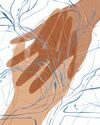
FINDING OUR WAY
A Polynesian Explorer's Journey of Discovery
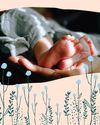
The First Imprint: Understanding PTSD
CHRISTIANNA DEICHMANN is the Director of Education at the Association for Pre and Perinatal Psychology and Health (APPPAH), where she educates both professionals and parents on fostering the most nurturing environments for welcoming new life into the world.
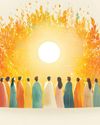
The Tipping Point
In this final conversation of the series, J. FREDERICK ARMENT continues to talk with CHRISTINE JONES about promoting peace in the world.
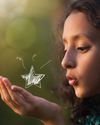
UNLOCK YOUR POTENTIAL
Take The Brighter Minds Path To Cognitive Development

The Intrinsic Goodness of the Heart
DAAJI shares some thoughts on heartfelt acceptance and all it has to offer. He says, \"It is the heart's intrinsic goodness that allows us to accept everything as part of us.
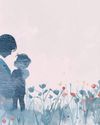
How Does Fear Affect Our Roles as Mothers? - Neelam Shivhare explores some of the great ancient texts of India on motherhood, compares the behavior of Kaikayi and Yashoda
Neelam Shivhare explores some of the great ancient texts of India on motherhood, compares the behavior of Kaikayi and Yashoda, and realizes the importance of removing fear from our hearts in order to nurture our children.For young women like myself, who are future mothers, I trust we are on the path of becoming selfaware and brutally honest with ourselves. We are creative beings, never forgetting the gifts with which we have been bestowed— the love and tenderness, natural instincts, and intuition to feel the right path. It all lies in the mysterious meanderings of the heart. Are we really listening to our hearts, or confusing the bombarding information on social media with reality?